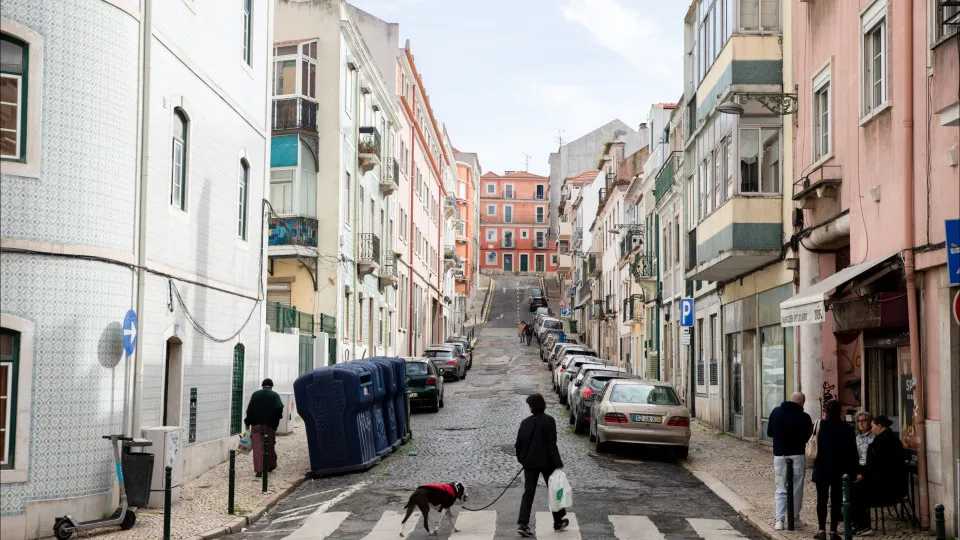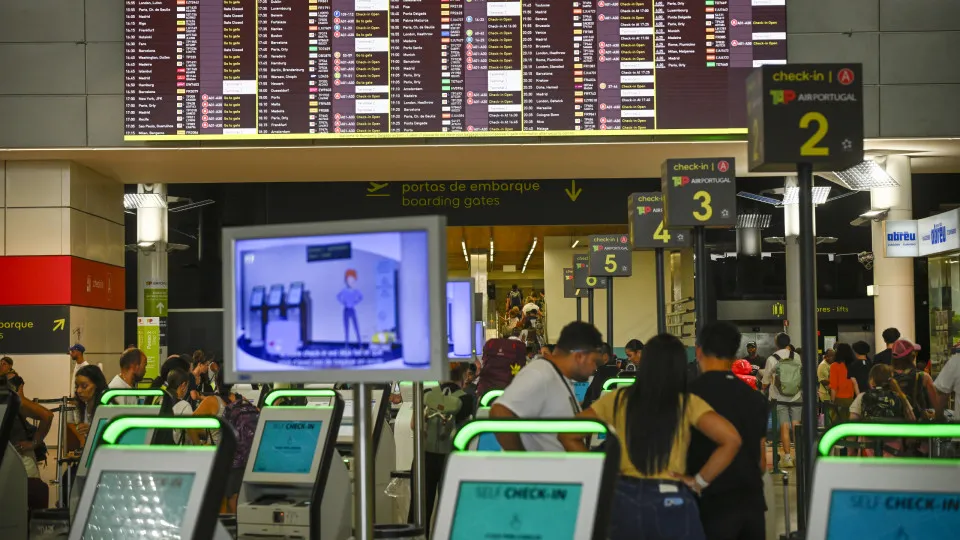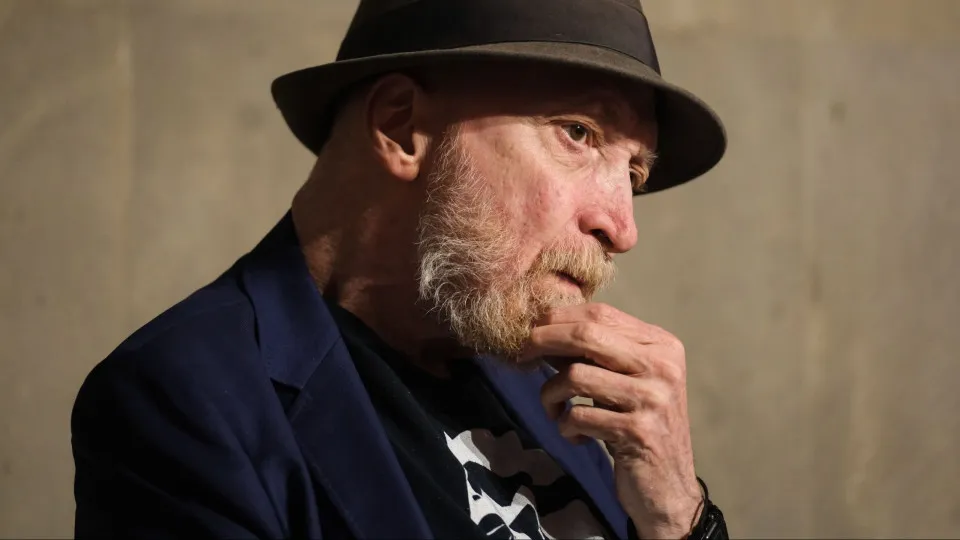
With diverse and even opposing visions, the candidates for the presidency of the Lisbon City Hall in the local elections on October 12 — Carlos Moedas (PSD/CDS-PP/IL), Alexandra Leitão (PS/Livre/BE/PAN), João Ferreira (CDU-PCP/PEV), Bruno Mascarenhas (Chega), Ossanda Líber (Nova Direita), José Almeida (Volt), Adelaide Ferreira (ADN), Tomaz Dentinho (PPM/PTP), and Luís Mendes (RIR) — share a priority to address the housing crisis.
Promising to build more housing in Lisbon over the next four years in the 2025-2029 term, the PSD/CDS-PP/IL coalition proposes “almost 5,000 homes”, including 2,400 in Vale de Santo António and 2,000 in Vale de Chelas, and aims to strengthen partnerships with the social and private sectors to promote affordable rent projects.
The PS/Livre/BE/PAN coalition commits to “immediately unlocking” affordable rent operations, notably in Restelo, Ajuda, Benfica, Marvila, Arroios, Bairro Alto, and Penha de França, and plans to “launch 4,500 new municipal homes”, with an additional 1,500 promoted by the central government.
The CDU — PCP/PEV coalition argues that the Lisbon City Hall, as the city’s largest property owner, has the duty to rehabilitate scattered heritage and build on available land through “direct construction”, such as the Municipal Affordable Rent Program (PACA) operation in Alto Restelo, with 430 units, or Vale de Santo António, which envisions 2,400 houses.
Advocating for more affordable housing on municipal land and in partnership with private entities, with faster and more transparent licensing processes, Chega suggests the “construction of 4,500 homes”, with two-bedroom units priced up to 700 euros per month.
The Nova Direita promises the “construction of 17,000 homes by 2030”, with 10,000 for low-income families and 7,000 for young people and middle-income families, with rent capped at 30% of monthly income; Volt proposes a municipal public housing program, “with an annual investment of 150 million euros for the construction of public affordable rent apartments”; and RIR suggests building 11,000 homes, using public-private funding and Recovery and Resilience Plan (PRR) funds.
ADN prioritizes “transforming the Lisbon Prison Facility into a new neighborhood with hundreds of affordable homes and transferring the airport [of Lisbon] to Alcochete, freeing up land to create a new parish with housing for Lisbon residents”; while the PPM/PTP coalition prioritizes “reducing insecurity in the housing market” by ending the equal-price transport pass for metropolitan areas, which “increases housing costs in the outskirts without reducing them in the center and does not increase housing supply”.
In addition to new construction, PSD/CDS-PP/IL aims to invest in the rehabilitation of municipal neighborhoods, municipal subsidies for affordable rent, supported rental programs, housing cooperatives, restoration of historic neighborhoods to welcome young people, and enhanced enforcement against the “illegal occupation” of properties, with a “zero tolerance” policy.
In the long term, aiming to ensure that 20% of homes in Lisbon are public, PS/Livre/BE/PAN intends to use the right of preference, reactivate the Secure Rent program, rehabilitate municipal neighborhoods, support cooperatives, invest in modular construction to reduce costs and timelines, repurpose dilapidated state buildings, launch specific tenders for young people, combat overcrowding, and limit and regulate local accommodation.
CDU advocates for “non-speculative affordable housing”, including through the Cooperative Support Program; public-public and public-community partnerships for collaborative revitalization by mobilizing state and municipal heritage; inclusive zoning with quotas for affordable housing in new developments (target of 25%); and eradication of vacant units/buildings, introducing them into the affordable rental market via fiscal mechanisms and incentives.
Considering that “large-scale immigration has worsened overcrowding and pressure on the market” and arguing that “it’s urgent to return to Lisboners the right to live in their city”, Chega plans to turn 50% of municipal tenants — who are rent-compliant — into owners, rehabilitate vacant municipal units, and impose tax measures like reducing construction VAT to 6%.
The Nova Direita proposes rehabilitating 1,000 vacant municipal properties, promoting cooperatives, and selling social housing to current tenants at cost price; while Volt suggests expanding cooperatives, a 60% affordable housing quota for new projects, and restrictions on local accommodation, including “a maximum of two accommodations per entity”.
ADN intends to recover vacant properties, encourage landlords to offer fair rents, and enhance enforcement against overcrowding and exploitation of immigrants; RIR also advocates for the rehabilitation of vacant properties, creation of affordable housing, increased student accommodation availability, and creation of support centers for integration and active neighborhood projects; and the PPM/PTP coalition wants to align IMI with the cost of urban services in the neighborhood (instead of the estimated property values) to avoid urban sprawl, eliminate property transaction taxes, and address “pressures to recreate shantytowns”, taking care of infrastructure and public services, defining property rights, and addressing tax obligations.
Currently, the Lisbon municipal executive, presided over by Carlos Moedas (PSD), includes seven members from the “Novos Tempos” coalition – PSD/CDS-PP/MPT/PPM/Aliança, seven from the “Mais Lisboa” coalition – PS/Livre, two from the CDU, and one from the BE.




